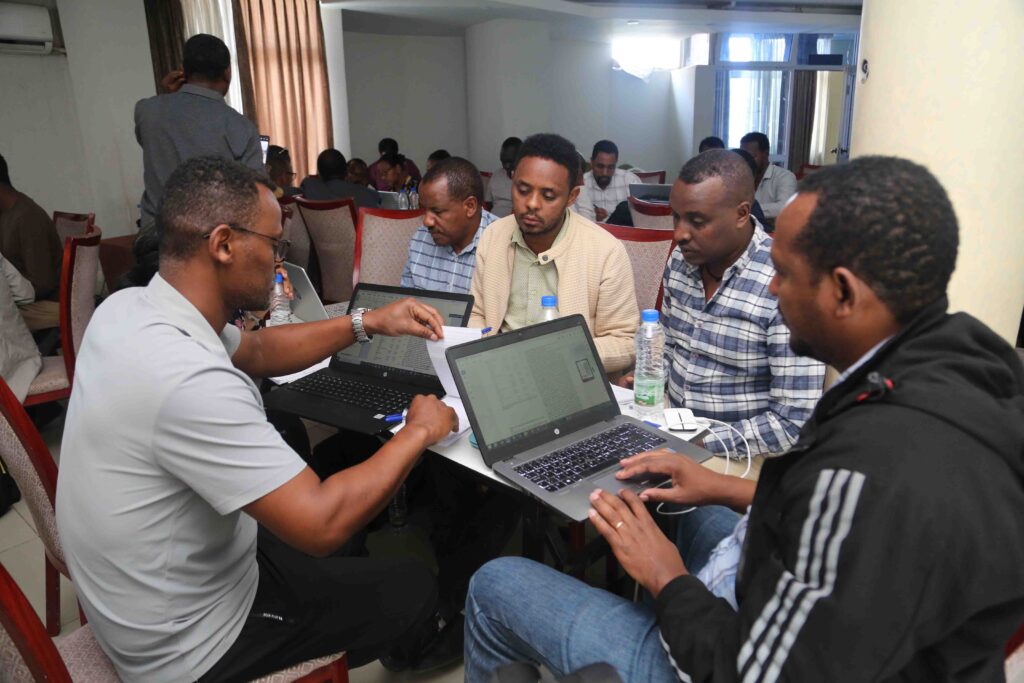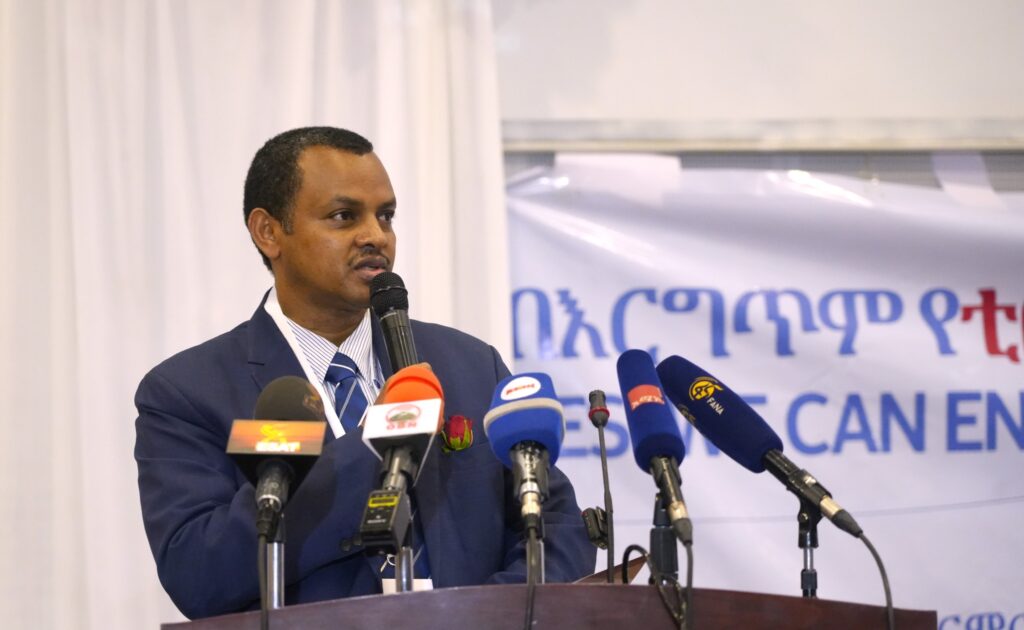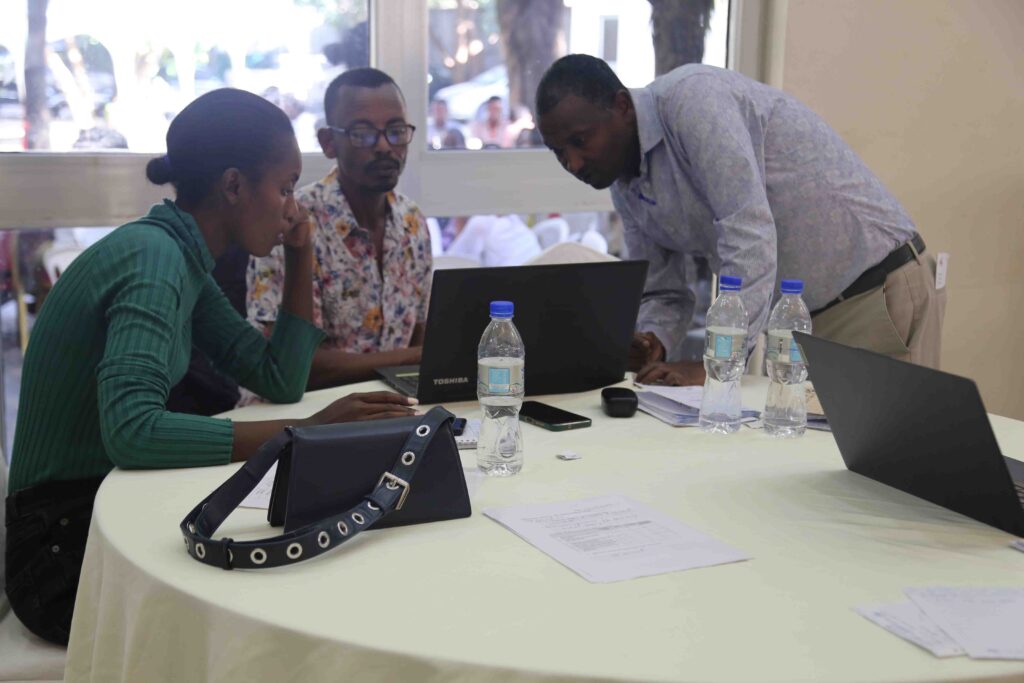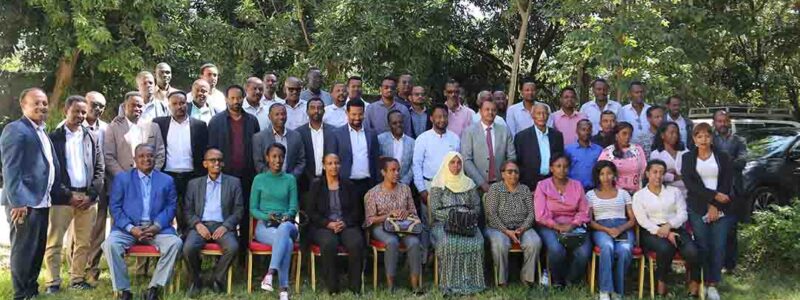In the realm of tuberculosis (TB) research, Ethiopia has faced a notable decline in momentum in recent years, as highlighted by a comprehensive assessment conducted by the World Health Organization (WHO) in 2020. This downturn, marked by a significant decrease in TB research activities from 2017 to 2020, was primarily attributed to resource constraints and exacerbated by the challenges posed by the COVID-19 pandemic.
Amidst this backdrop, strategic information and tuberculosis research have emerged as pivotal components of Ethiopia’s Tuberculosis and Leprosy (TBL) National Strategic Plan (NSP) for the period spanning July 2021 to June 2026. Central to this strategic framework is the imperative of generating evidence through enhanced operational research and leveraging data from routine program implementations to inform and guide national endeavors towards tuberculosis elimination.
Recognizing the critical need to bolster Ethiopia’s TB response by focusing on research capacity building and evidence generation, the TB Commitment Grant (TCG) initiative was launched in January 2023.
Ten operational research projects were conducted in Ethiopia. The grant arrived at a crucial time when there was a pressing need for research in these areas.
Mr. Shibiru Lencho; TB, Leprosy, and HIV Program Coordinator of the Sidama Regional Health Bureau and Principal Investigator of the research project conducted in Sidama region, emphasized the significance of the project for the region.

“Our primary focus was on program implementation. In fact, we lacked expertise in research. AHRI, in collaboration with the Ministry of Health, provided us with two rounds of capacity-building training, and Hawassa University offered mentorship. We gained valuable knowledge starting from title selection, study design, data collection and analysis, all the way to report writing. I can speak with confidence now that we got a strong team for research”
TB operational research capacity building is much needed, especially in a region like Sidama with a high burden of tuberculosis. Shibiru and his team embarked on a research project focused on studying the lung function of tuberculosis patients who had successfully completed treatment in Sidama Region, South Ethiopia. The team dedicated months to conducting their research, which involved study design, collecting data, analyzing results, and drawing conclusions based on their findings.
Throughout the research process, Shibiru and his team received insightful feedback from project coordinators, PI and Co-PI, who guided them at every step. This feedback helped them refine their research methodology, ensure the accuracy of their data collection, and improve the overall quality of their study. Additionally, the mentorship provided by an academician from a nearby public university played a crucial role in enhancing their skills in conducting operational research related to tuberculosis.
By working closely with an experienced mentor and receiving constructive feedback from project coordinators at AHRI, all the research project participants, like Shibiru and his team, were able to acquire practical skills in TB operational research. This hands-on experience not only enriched their knowledge but also equipped them with the necessary tools to conduct high-quality research in the field of tuberculosis. Shibiru said the support and mentorship provided to him and his team enabled them to conduct meaningful research that has the potential to make a significant impact on tuberculosis management. strategies in the region and beyond. Shibiru is now “confident” that he and his team can conduct such research in the future through mobilization of funds from the region.
The role of mentorship
Two rounds of comprehensive training were provided on research ethics, methodologies, data analysis, manuscript development, and publication, for 37 participants. This includes TB program managers and implementers.
Muluken Birhanu, Chief Clinical Laboratory Professional, was one of the mentors in one of the operational research projects, and he is a lecturer and research advisors team coordinator at Assosa University. Muluken mentored the Benishangul Gumuz Regional operational research team for almost a year.
“As a mentor, I provided support to the research teams on proposal development, data entry and analysis, result writing, and developing a manuscript. I also provided guidance to the research teams on securing ethical clearance and maintaining quality assurance throughout the research.”
The Benishangul operational research project focused on the prevalence of tuberculosis and risk factors among the most vulnerable population groups, such as the gold mining community, using a digital CXR machine parallel to a symptom algorithm for TB screening.
“The project has a big impact on tuberculosis care and treatment among the high-risk population living in remote and hard-to-reach areas. In particular, the use of digital CXR significantly increase TB detection rate among the gold mining population. Among 2173 screened gold miners, TB treatment was initiated for 38 gold miners, and health education on TB transmission, diagnosis, treatment, prevention, and control was provided to all of the gold miners.”
Muluken said mentorship is crucial in TB operational research projects in providing guidance and support to the research teams on how to develop research proposal, validate research instruments, do data entry and analysis, and result write up, all of which are highly valuable in enhancing the quality of the research findings.
According to the mentor, the operational research project was an opportunity to provide the research team with important skills that will “help them conduct quality research projects by themselves in the future”.

Prof. Afework Kassu, Chairperson of the Tuberculosis Research Advisory Council (TRAC) and Director General of the Armauer Hansen Research Institute (AHRI), highlighted the integration of senior experts from TRAC, partners and regional stakeholders at every stage of the research project as a key factor in its success. This collaborative approach not only facilitated research capacity building but also ensured relatively smooth implementation, leading to the successful completion of all operational research undertaken as part of the project.
The professor emphasized the harmonization of TB program implementers and academia. This integration, which is a hallmark of the TRAC mechanism with a proven track record, facilitated successful knowledge transfer and capacity building among TB program implementers in different areas of the country.

Dr. Birhanu Seyoum, Senior scientist at AHRI and PI of the project, on his part indicated that the project’s results are a significant source of information for future studies on TB management, policy development, and practice. He emphasized that the findings could offer valuable insights into the effectiveness of interventions and diagnostic methods across diverse populations and settings.
“These findings can serve as baseline data for policymakers to create evidence-based programs and improve guidelines for TB prevention, diagnosis, and treatment. Additionally, healthcare providers may enhance patient outcomes and reduce burden of TB in their local contexts.” the PI explained.
Dr. Birhanu stated that, despite facing challenges the project achieved several successes. It has trained over 30 research fellows and TB program managers, completed ten prioritized research projects, established a digital TB resource center to support national efforts in combating TB, and facilitated knowledge sharing and networking among regional research teams. Ensuring effective communication among research teams, weakness and/or lack of Institutional Review board (IRB) in regional research sites, engagement of research teams in routine activities and limited resources among regions to assist research teams were some of the major challenges.
According to the senior scientist and PI, findings of the research project can benefit both the regional and national TB control program as they provided evidence that will assist in designing of tailored and robust interventions.
The Tuberculosis Commitment Grant, which is a fixed-amount sub-award, was issued under the United States Agency for International Development (USAID) -Tuberculosis Implementation Framework Agreement (TIFA) through JSI, and implemented by Armauer Hansen Research Institute (AHRI), with oversight from TRAC and NTP.
Befekadu Beyene











